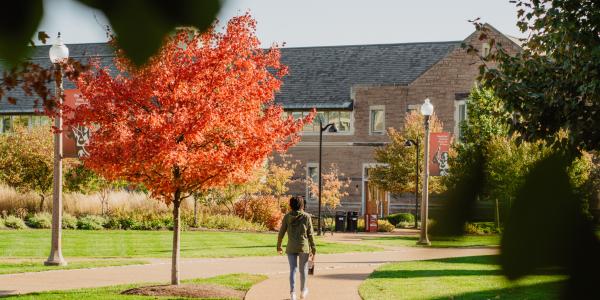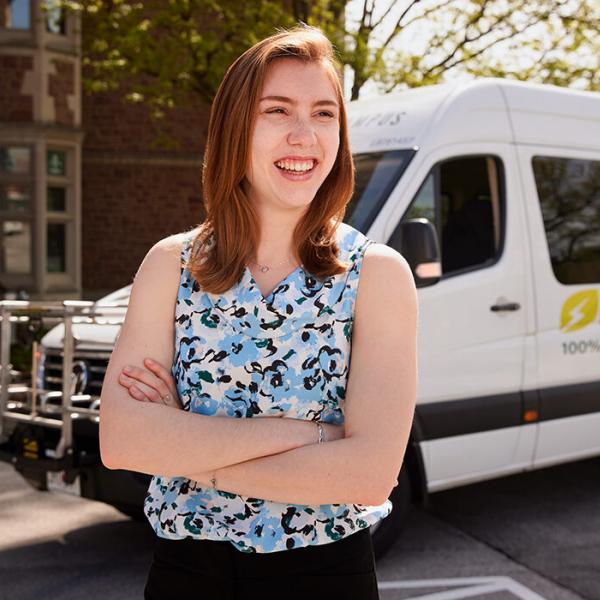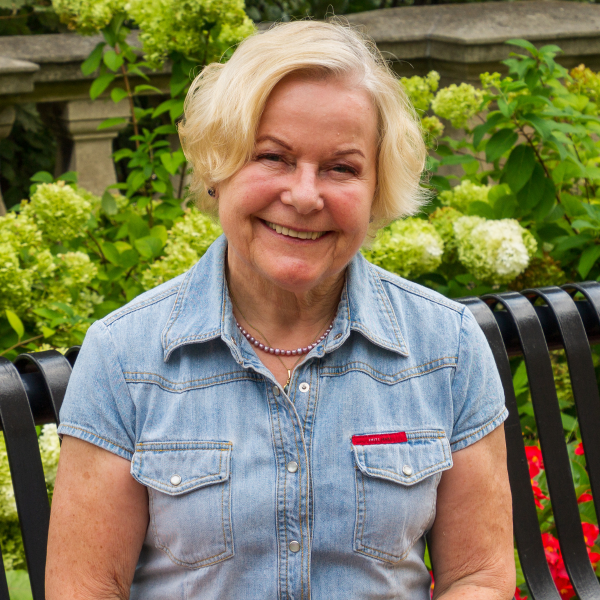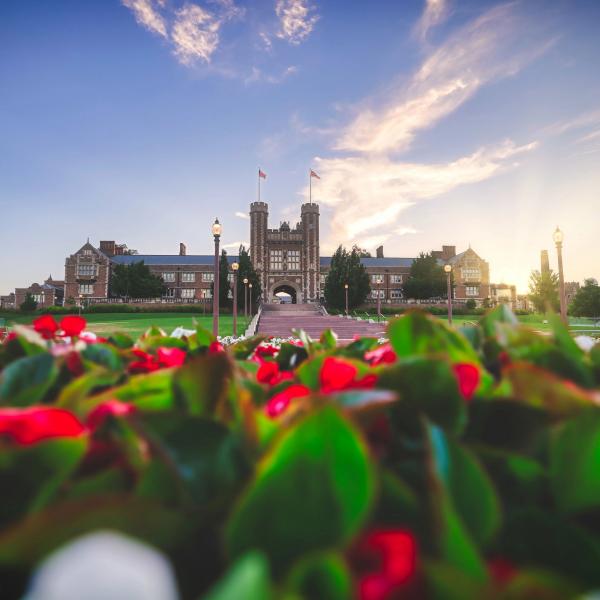Every semester, students from around the world get to know the United States by attending Washington University. Three current exchange students share their experiences navigating academics and life in their new home.
By the time they graduate, about one-third of Washington University students study abroad, spending a semester or more living in another country. They immerse themselves in different cultures, polish their language skills, and come back to campus eager to share what they’ve learned. On the flip side, WashU also hosts both undergraduate and graduate exchange students each semester who come from all over the world to study abroad in the United States.
Due to their small numbers, exchange students here may go unnoticed, but their international perspectives enhance the entire campus community, providing an opportunity for other WashU students – even those unable to study abroad – to interact with peers whose life experiences greatly differ from their own. In turn, the exchange students learn about the U.S. and return to their home countries more prepared to be global citizens.
This academic year, Arts & Sciences hosts eleven exchange students, plus four who will spend just the fall semester here. Exchange students are “copiously welcomed,” according to Amy Suelzer, the director of Overseas Programs. Her office coordinates the exchange students’ participation in Bear Beginnings and other orientation programming, as well as a buddy program that pairs each exchange student with a current WashU student who serves as a mentor and even a friend.
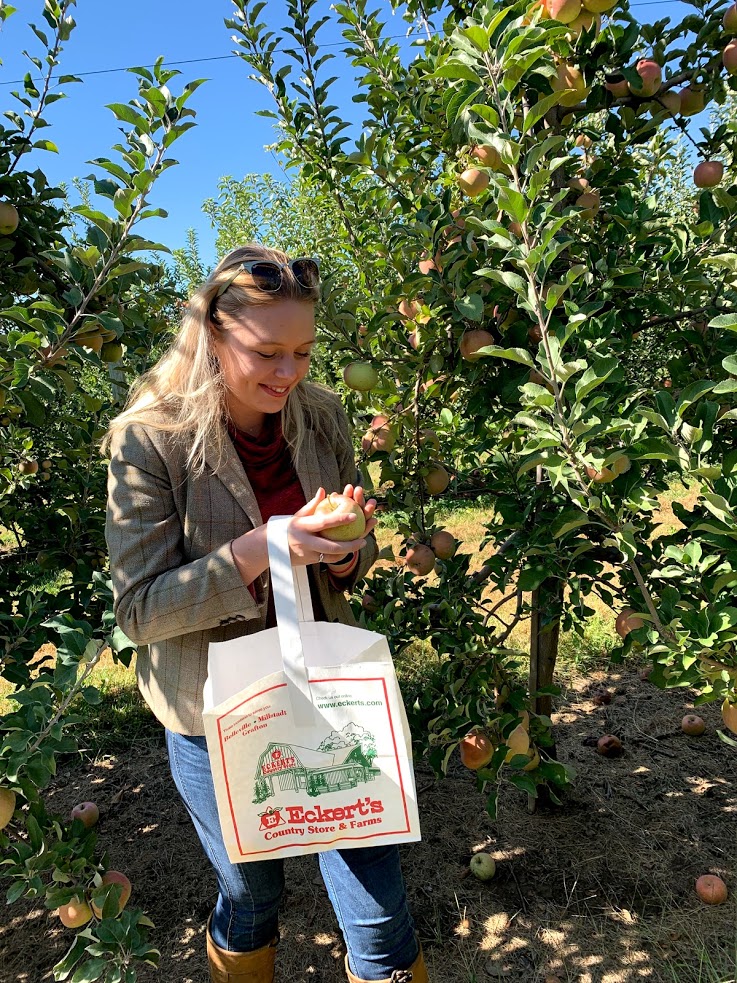
Charlotte Saville studies biomedical sciences at the University of Sussex in England, but at WashU she is also taking legal studies courses. For her, choosing to study abroad in the United States was an easy decision because she wanted the academic flexibility offered by the U.S.’s system of majors and minors. WashU appealed to her because of its academic rigor. “I wanted something that was academically regarded, so I could be pushed academically and be around people that have the same focus on academics as I do,” she said.
One highlight of her semester so far has been befriending her buddy. “We went apple-picking, and we had a girls evening of watching movies and making dinner,” she explained. “I see her normally like two or three times a week.”
When comparing the academic environments here and at their home universities, exchange students noted the prevalence of small, discussion-based classes and meaningful interactions with professors at WashU. “The professors are more caring about the students here in the U.S.,” said Johannes Stuhrmann, a graduate student of German Literature at the University of Tübingen. “They stay constantly in contact with you and if you’re falling behind somewhere, they try to push you. And that’s less the case in Germany.” Stuhrmann chose a program at WashU because it includes a teaching assistantship and the opportunity to earn his master’s degree in one year.
Monika Haegele also attends the University of Tübingen, pursuing a degree in British and American Studies. Her course load this semester focuses on that area, but she is also taking an acting class for fun. She spent her sophomore year of high school in Colorado, and after that experience she knew she wanted to study abroad in the U.S. again during college.
Although these students have been enjoying their time at WashU so far, they do miss some things about home. “The food,” Saville said without hesitation. “At my university, from year one you have your own kitchen and you cook for yourself. Normally I cook loads and loads of vegetables.”

Additionally, both Stuhrmann and Saville mentioned that not having a car here restricts their independence, since campus is more self-contained and the public transit system in St. Louis is much less robust than in their hometowns. “In Tübingen the university is more than 500 years old, and it’s a small city with about 90,000 inhabitants and nearly 30,000 students,” Stuhrmann said. “The city was built up around the university and it's all intertwined.”
While not frequent, cultural misunderstandings crop up from time to time. “When people are talking about being conservative and liberal here, that’s a very different definition for us” in England, Saville said. For her, “coming up with what the correct political definition for me is in the American system” has been a challenge. For her part, Haegele recalled that “here I've been told early happy birthday like two weeks in advance,” which surprised her because “in Germany it's bad luck to wish someone an early happy birthday.”
At WashU, exchange students can participate in the full range of student clubs and extracurriculars. Stuhrmann joined Association of Christian Truth Seekers and is taking a graduate dance class, while Haegele joined Kids on Campus and Story Scope. Saville joined the equestrian team, the crew team, and the ΑΟΠ sorority and volunteers with Camp Kesem. These experiences have given them the opportunity to pursue their interests beyond academics while getting to know their fellow students.
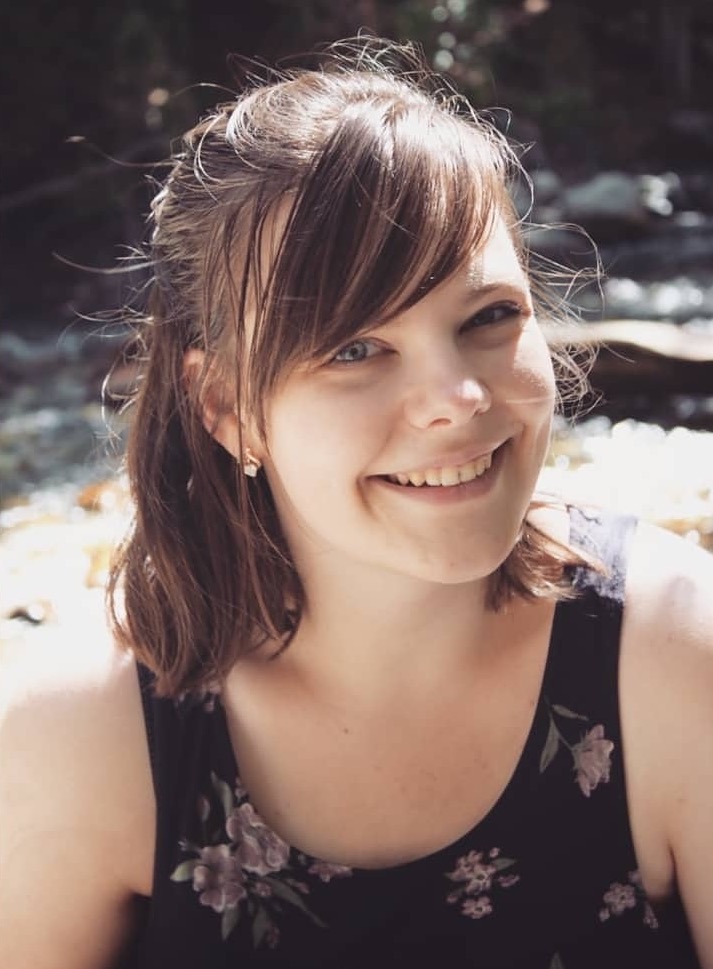
Additionally, exchange students participate in a wide variety of programming designed specifically for them. “We plan things that relate to typical holidays or events in the U.S.,” explained Cintia Collins, a senior who works with the buddy program and the Office for International Students and Scholars (OISS). “That way they can paint pumpkins and try some pumpkin pie, apple cider, very traditional American fall desserts and activities. And then during the holiday season we do gingerbread house making.” The First Year Center organizes outings to Cardinals and Blues games to share the sports side of U.S. culture with exchange students.
Collins has worked with exchange students since her sophomore year. Each semester, she enjoys “getting to know them, their culture, their foods. I’m a big foodie, so I love cooking with them.” She encourages other WashU students to get to know the exchange students they see on campus, whether in classes, clubs, or elsewhere.
Stuhrman noted his appreciation for his classmates’ friendly and welcoming attitude. “Everyone is so outgoing, and they’re excited about things,” he noted. “The whole campus tries to foster this inspiring atmosphere, to try to connect people, and I like that.” This atmosphere of openness allows exchange students to become comfortable on campus, even in a relatively short amount of time. With the fall semester now more than halfway complete, “I feel like now I've kind of gotten in the swing of things,” said Saville. “I don’t feel quite so lost when I'm walking around, so I'm enjoying feeling like a student rather than a new student.” Looking ahead to the rest of the semester, she’s especially excited to visit her buddy’s family for Thanksgiving.
For Haegele, the best part of studying abroad is “getting to know other people, and it's a way to network, too. Now I have people from Hong Kong, I have people from England and Holland and America and everywhere, and it's nice to have this international group of friends. I would encourage everyone to take a semester and go abroad, wherever that might be.”

